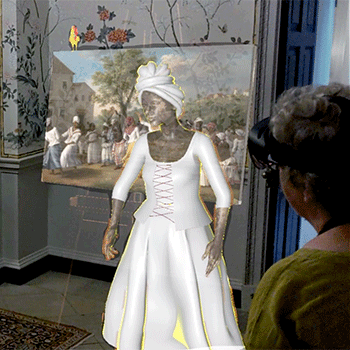
Dr Damon Daylamani-Zad
Senior Lecturer in Digital Media
Michael Sterling 256
- Email: damon.daylamani-zad@brunel.ac.uk
- Tel: +44 (0)1895 267638
Research area(s)
Damon's main research activities are within the Creative Computing, Games and Digital Media domain, and are specifically focused on Applications of Artificial Intelligence in Games and Digital Media including Collaborative Content Modelling, Serious Gaming, Immersive technologies in cultural heritage, Immersive technologies in training and education, Gamification for accessibility design and User Modelling and Personalisation. He has worked on using Machine Learning for automated music generation, strategy planning, user modelling and game personalisation, use of Artificial Intelligence (swarm intelligence) in strategic and serious games, use of gamification for accessibility design and serious games for reading interventions in Dyslexia. He has been involved in various projects funded by the EPSRC, AHRC, NIH, the Bikeability Trust and Department for Transport. The results of his projects have been adapted for personalisation in MMOGs (Artemis) and in developing frameworks for collaborative decision-making games (Lu-Lu and responsive Lu-Lu).
Research Interests
- Applications of AI in Games and Digital Media
- Machine Learning & Evolutionary Algorithms (Neural Networks, Genetic Algorithm, Swarm Intelligence)
- Games, Serious Games and Gamification
- Accessibility Design in Games and Digital Media
- Extended Reality (xR) and Immersive Technologies: AR, VR and MR
- Computer Generated Music
Research grants and projects
Research Projects
Grants
Funder: Arts & Humanities Research Council
Duration: April 2022 - March 2024
Funder: The Bikeability Trust and Department for Transport
Duration: January 2022 - September 2022
Brunel University London is in Hillingdon, an ethnically diverse borough which is home to 19,946 children aged 10-14 years. Children in this age group are missing out on accessing Bikeability Level 3 training: despite a thriving Bikeability Level 2 programme in the borough, the number of Bikeability Level 3 sessions is low . This project is designed to improve our understanding of why, and to identify ways in which we can increase children's cycling in the borough, using a variety of technological approaches to do so.
Research links
Co-author network
- Dr Harry Agius
- Dr Fotios Spyridonis
- Dr Daniel Bishop
- Prof George Ghinea
- Dr Arthur Money
- Dr Mariza Dima
- Visualise network


